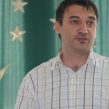
Circassians Grow Frustrated with Moscow’s Handling of Syrian Circassian Repatriation Requests
Publication: Eurasia Daily Monitor Volume: 10 Issue: 17
By:

On January 9, Russia’s State Duma rejected Circassians’ calls for the Russian government to treat the Syrian Circassians as compatriots. In a response to a Russian parliamentary query, the head of the department of inter-ethnic relations of the Russian Ministry for Regional Development, Alexander Zhuravsky, wrote that the Syrian Circassians have questionable credentials pertaining to their relationship with Russia. Zhuravsky said the Syrian Circassians are descendants of Circassians who “did not become Russian subjects and made a voluntary choice to leave the region after the end of military actions in the course of the Caucasus war of 1817–1864. Thus, the ancestors of contemporary Syrian Circassians lived on territories that before their move to the Ottoman Empire in 1864 were not part of the Russian state.” Therefore, the Russian government official concluded, they could not be considered Russian émigrés and did not benefit from existing Russian laws that simplify the return of such individuals to Russia (https://adigasite.com/archives/2477).
The Russian ministry’s response to the parliament was then redirected to the original petitioner, Adam Bogus, the head of the Adygean organization Adyge Khase—Circassian Parliament. The response sparked a significant outcry from the Circassian public. It is worth noting that Circassians from across the political spectrum, from outright Moscow’s loyalists to opposition supporters, condemned the Russian government’s response. Albert Kazharov, the Kabardino-Balkarian representative in the Federation Council expressed his “extreme astonishment” at Zhuravsky’s statement. According to Kazharov, Russian government agencies in fact recognize the Circassians as compatriots, while the Russian foreign ministry has a program for cooperation with the Syrian Circassians. Muaed Chechenov, first deputy to the coordination council of civil organizations of Kabardino-Balkaria, noted that the position of not recognizing the Syrian Circassians as Russian compatriots was coordinated between the Russian government and parliament. Chechenov accused Moscow of imperialism and inconsistency. A Circassian activist from Kabardino-Balkaria, Ibragim Yaganov, pointed out that the official declaration that historical Circassia was not part of the Russian Empire prior to the Russian conquest in the 19th century manifestly contradicted the pompous celebrations of the 450th anniversary of the “voluntary accession” of Kabardino-Balkaria, Karachaevo-Cherkessia and Adygea to the Russian Federation (https://aheku.org/page-id-3415.html). An outspoken Moscow-loyalist Circassian leader based in Krasnodar region, Asker Sokht, still pretended that the Syrian Circassian issue has not been dismissed altogether by the Russian government. Sokht said that delays in resolving the problem of the Syrian Circassians were against the Russian state’s interests and Alexander Zhuravsky was just expressing his personal opinion, not the official position of the Russian government. According to Sokht, the Russian authorities’ cooperation with Circassians living outside Russia is based on the Russian state program for supporting compatriots abroad, so Moscow de-facto recognizes foreign-born Circassians as Russian compatriots (https://kavpolit.com/cherkesy-ne-sootechestvenniki).
Observers say the Russian government’s official application of the concept of Russian compatriots to the Syrian Circassians has created numerous inconsistencies. Some historical evidence suggests that officials of the Russian Empire at the time in fact regarded the deportation of Circassians from their homeland in the North Caucasus to the Ottoman Empire as stripping them of their Russian citizenship (https://adigasite.com/archives/2477). In 2006, President Vladimir Putin issued three decrees to officially mark the 450th anniversary of “voluntary accession” to Russia of Adygea, Karachaevo-Cherkessia and Kabardino-Balkaria—the three republics of the North Caucasus where Circassians reside in large numbers (https://avrom-caucasus.livejournal.com/239335.html). The idea that Circassians “voluntarily abandoned” their homeland following the Russian conquest is yet another insult added to the injury suffered by the Circassians. Some Circassians say that Zhuravsky will be responsible for the increased harm the Circassian issue will cause Russia’s reputation (https://www.kavkaz-uzel.ru/blogs/1927/posts/13716).
It is interesting that the Russian foreign ministry also did not dismiss Circassian calls for the Syrian Circassians to be considered Russian compatriots. Instead, responding to the appeal by Circassian leader Adam Bogus, the ministry said Russia supports international humanitarian missions in Syria and evacuates people from the war-ravaged country (https://www.elot.ru/index.php?option=com_content&task=view&id=3171&Itemid=1).
In the meantime, descendants of Circassian refugees from the North Caucasus have continued to return to the region in small numbers. In January, another eight people arrived in Nalchik from Syria (https://www.elot.ru/index.php?option=com_content&task=view&id=3180&Itemid=1). The first six people of Ossetian origin from Syria arrived in North Ossetia (https://region15.ru/news/2013/01/24/21-35/). So regardless of the official position of the Russian government or some of its branches, some Circassians and other North Caucasian descendants continue to trickle in from Syria.
The Russian government’s inhospitable reception of the Circassian emigrants and dismissive attitude toward Circassian claims that the Syrian Circassians are fellow countrymen may further alienate the North Caucasian Circassians from the Russian government. Moreover, the current situation, in which Circassians increasingly feel they cannot expect assistance from the Russian government to rescue their ethnic kin in Syria, may lead some to think that only a Circassia independent of Russia could fully represent Circassian interests. So far, Moscow has done much to convince Circassian activists that they should not put much hope in Russia to achieve their goals, even when it comes to the basic, physical survival of Circassians from the hazards of war.




